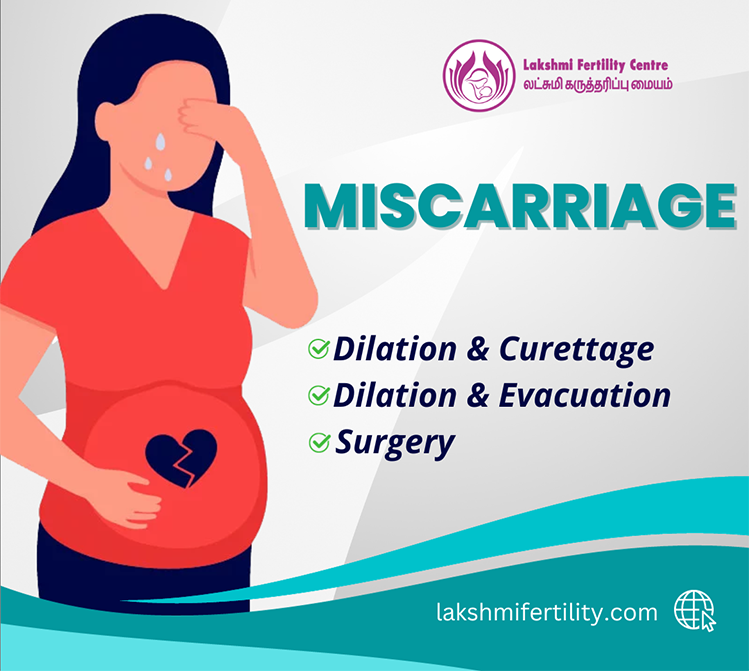MISCARRAGE
50% of all miscarriages occurs due to Chromosomal abnormalities during the first trimester (up to 13 weeks) of pregnancy. Chromosomes are tiny structures inside the cells in the body that carry genes. Genes determine all of a person’s physical attributes, such as assigned sex, hair and eye color and blood type. During fertilization, when the egg and sperm fuse, two sets of chromosomes come together. If an egg or sperm has more or fewer chromosomes than normal, the foetus will have an abnormal number. As a fertilized egg grows into a foetus, the cells divide and multiply several times. Abnormalities during this process also leads to miscarriage.

SYMPTOMS OF MISCARRIAGE:
- Hormonal imbalances.
- Improper implantation of fertilized egg in the uterine lining.
- Age.
- Uterine abnormalities.
- Incompetent cervix.
- Disorders of the immune system - lupus.
- Diabetes.
- Thyroid.
- Malnutrition.
MEDICATION:
-
During the loss of a pregnancy, the foetus must be removed from the uterus. If any parts of the pregnancy are left inside the body, it may cause infection, bleeding or other complications. If the miscarriage is complete and the uterus expels all the fetal tissue, then no further treatment is usually needed. If the body doesn’t remove all the tissue on its own or the bleeding hasn’t started, the patient will be recommended to remove the tissues with surgery. Dilation and curettage (D&C) or dilation and evacuation (D&E) should be performed if the uterus is bleeding heavily. Surgery may also be the only option if the pregnancy is beyond 10 weeks’ gestation. During these procedures, the cervix will be dilated, and any remaining pregnancy related tissue is gently scraped or suctioned out of the uterus under anesthesia.
